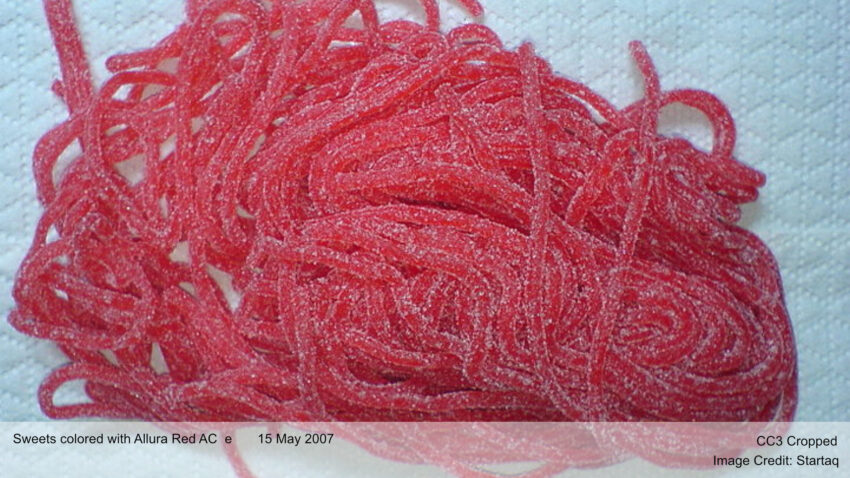Advisers to Robert F. Kennedy Jr. are considering a major overhaul of the FDA’s food additive rules. This initiative aligns with Kennedy and President-elect Donald Trump’s aim to eliminate harmful chemicals from food as part of their “Make America Healthy Again” pledge. The focus is on revising the FDA’s “generally recognized as safe” (GRAS) provision. This change seeks to address concerns that the current system allows self-policing by companies, potentially compromising food safety.
- FDA Food Additive Rules Under Review: Advisers to Robert F. Kennedy Jr. and President-elect Trump are pushing to reform the FDA’s GRAS provision, aiming to strengthen oversight of chemicals in food.
- Concerns Over Self-Policing: Critics argue that the current GRAS system allows companies to self-certify food additives as safe, bypassing rigorous FDA scrutiny, which could compromise food safety.
- Regulatory and Resource Challenges: Making GRAS notifications mandatory would strain the FDA’s limited resources, necessitating additional congressional funding, which has faced political resistance.
- Potential Legal and Industry Implications: Overhauling GRAS rules may require congressional action, though Kennedy proposes executive measures; food industry leaders express cautious support for improved safety standards.
Calley Means, a key adviser to Kennedy, criticized the current regulatory framework on “The Liz Wheeler Show.” He labeled it a “totally rigged system” and called for a review. Means argues that the GRAS process allows companies to add chemicals to food that are banned elsewhere without sufficient oversight. Critics have long highlighted this “loophole,” which lets companies decide which additives are safe without the FDA’s input. Melanie Benesh from the Environmental Working Group described the system as flawed. She noted that new food chemicals shouldn’t bypass stringent approval processes.
Some companies avoid the voluntary process for GRAS approval, raising concerns about the integrity of food safety regulations. Jim Jones, the FDA’s top food official, acknowledged the potential credibility issues. Bill Freese from the Center for Food Safety pointed out instances where companies self-certified additives as safe despite not passing FDA reviews. This practice deviates from the original intent to include only historically safe substances like salt and vinegar under GRAS exemptions.
Making GRAS notifications mandatory would increase the FDA’s workload significantly. The agency would need to review new additives and reassess previously approved ones. Current FDA resources are already stretched thin, leading officials to call for increased congressional funding. Proposals to fund oversight through application fees, similar to medical user fees, have stalled. Kennedy opposes the “user fees” model, particularly for drugs.
Legal challenges could also impede changes to the GRAS process. In 2021, advocacy groups lost a lawsuit demanding mandatory notifications. The court ruled it unclear if the FDA has the authority to enforce such changes. Some believe that closing the GRAS loophole may require congressional action. However, Kennedy’s team suggests executive branch changes are possible. Kennedy has proposed declaring a national emergency to tackle chronic disease, potentially bolstering his authority in this area.
Industry response to potential changes has been mixed. The Consumer Brands Association, representing major food companies, stated that consumer safety remains a priority. Sarah Gallo, the association’s senior vice president, emphasized the importance of a science-based regulatory framework. She indicated the industry’s willingness to collaborate with the new administration to support public health.
Kennedy’s tenure as Health and Human Services Secretary may bring significant shifts in food safety regulation. While legal and logistical challenges exist, the potential changes could alter how food additives are approved in the U.S.
Here are some food additives widely regarded as harmful due to potential health risks:
1. Artificial Sweeteners (e.g., Aspartame, Saccharin, Sucralose)
- Health Concerns: Linked to potential disruptions in gut microbiota, neurological effects, and possible carcinogenic properties (e.g., saccharin in older studies).
- Common Products: Diet sodas, sugar-free gums, and low-calorie snacks.
2. High-Fructose Corn Syrup (HFCS)
- Health Concerns: Associated with obesity, type 2 diabetes, and fatty liver disease due to excessive sugar intake.
- Common Products: Sweetened beverages, processed snacks, and baked goods.
3. Trans Fats (Partially Hydrogenated Oils)
- Health Concerns: Strongly linked to heart disease, inflammation, and elevated LDL cholesterol.
- Common Products: Margarines, fried foods, and packaged baked goods.
4. Monosodium Glutamate (MSG)
- Health Concerns: May trigger headaches, nausea, and adverse reactions in sensitive individuals; concerns about overexciting brain neurons (though research is inconclusive).
- Common Products: Soups, processed meats, and Chinese cuisine.
5. Artificial Food Colorings (e.g., Red 40, Yellow 5, Blue 1)
- Health Concerns: Linked to hyperactivity in children, potential carcinogenic effects, and allergic reactions.
- Common Products: Candies, sodas, and brightly colored snacks.
6. Preservatives (e.g., Sodium Nitrate/Nitrite, BHA, BHT)
- Health Concerns: Nitrates/nitrites in processed meats are associated with increased cancer risk; BHA and BHT are possible endocrine disruptors.
- Common Products: Cured meats, chips, and cereals.
7. Potassium Bromate
- Health Concerns: Recognized as a possible carcinogen, banned in many countries but still used in the U.S.
- Common Products: Bread and baked goods to enhance texture and volume.
8. Propylparaben
- Health Concerns: Possible hormone disruptor that mimics estrogen, raising concerns about reproductive health.
- Common Products: Baked goods and processed foods.
9. Titanium Dioxide
- Health Concerns: Linked to potential inflammatory effects and carcinogenic risks when inhaled; recently banned in the EU as a food additive.
- Common Products: Candy, baked goods, and chewing gum.
10. Carrageenan
- Health Concerns: May cause digestive inflammation and discomfort in sensitive individuals.
- Common Products: Dairy substitutes, ice creams, and processed foods.
Sources:
- Environmental Working Group, “Top Food Additives to Avoid”
- National Institutes of Health, “Health Effects of Artificial Sweeteners”
- American Cancer Society, “Food Additives and Cancer Risk”

